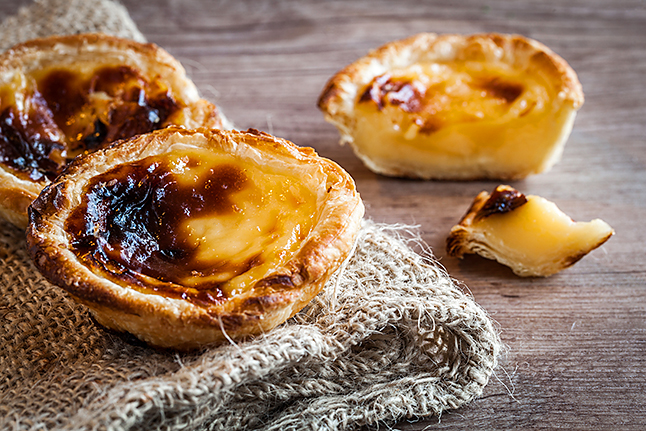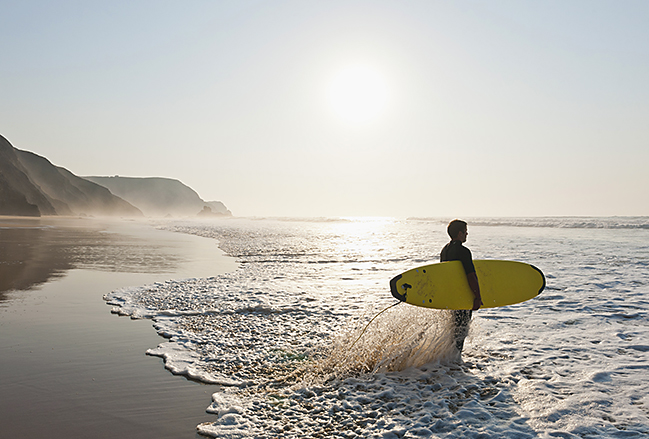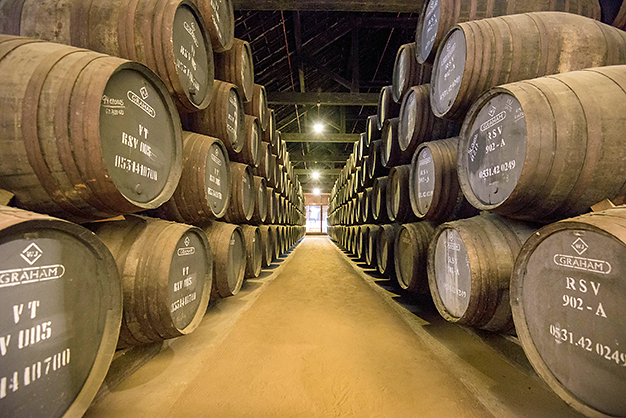Plan Your Trip
Hot Spots For...
Food & Drink
Though not one of the world's celebrated cuisines, no one can deny that Portugal serves up some tasty fare, especially meat and seafood dishes, wine and desserts.

As the Portuguese capital, Lisbon has the greatest variety when it comes to dining, with top chefs plating up imaginative creations.
Pastel de Nata
Lisbon is the birthplace of the famous egg custard tart.
The Unesco-listed Douro Valley, where Portugal's finest wines are produced, can be toured by car or scenic train line.
Quinta do Vallodo
A wine-tasting session at the Quinta do Vallodo dating from 1716.
Seafood dominates menus along the coast and this is definitely bivalve zone, with hordes of fresh clams, oysters, mussels, cockles and whelks.
Cataplana
A Portuguese version of paella that always comes in servings for two.
Water Fun
Portugal's coastline is all about getting out onto or under the water, whether that be on a surfboard, with flippers on your feet or in a boat.

Portugal's south coast is water sports central. And the beaches are pretty good, too.
Ilha da Barreta
This beach island is accessed by boat through nature-filled lagoons.
Cabo do São Vicente
Surfing is as big as the Atlantic's thundering waves at Portugal's southwesternmost tip.
Sagres is surfing paradise with a great après-surf scene come sundown.
The Atlantic’s chilly waters come to you in the shape of a network of canals in this coastal settlement south of Porto.
Boat Tours
Take a canal trip aboard a moliceiro, a traditional seaweed dredging boat.
Architecture
Portugal possesses a wealth of architectural heritage, from the fairy-tale castles and palaces of Sintra to the Manueline creations of the 16th century.

Lisbon is one of Europe's most attractive capitals, and this despite the 1755 earthquake that almost razed it to the ground.
This Unesco-listed monastery is a superlative example of the Manueline style.
The architectural feature most prominent in Portugal's second city is azulejos, the beautiful hand-painted tiles that adorn many buildings.
São Bento Train Station
Azulejos-spotters should head to this beautifully adorned railway station.
A short hop from Lisbon, this area of wooded hills has some of the finest architectural monuments in the country.
Castelo dos Mouros
A dramatic castle affording amazing views inland and out to sea.
Diverse Culture
Though small, Portugal's cultural landscape is pretty diverse, from the Algarve's Islamic-era heritage, to Lisbon's melancholic fado music to Porto's wine culture.

Portugal has given the world a very distinct type of music – the nostalgia-induced fado, a style that emerged from its working-class districts.
Many bars and restaurants put on fado performances.
Across the south coast remnants and reminders of the centuries the region spent under Moorish rule remain.
Silves Castle
This huge, 11th-century hilltop castle was built by the Moors.
Across the river from Porto's centre, this hillside boasts some of the best wine lodges in the country.
Graham's
An original British-founded wine cellar, established way back in 1820.